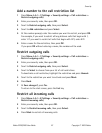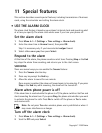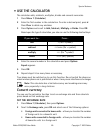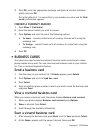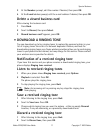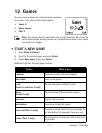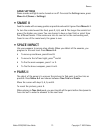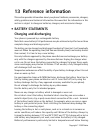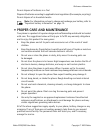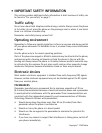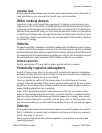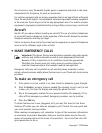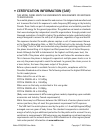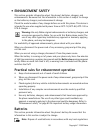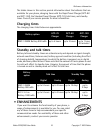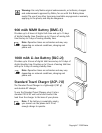
Nokia 2220/2260 User Guide 75
Copyright © 2003 Nokia
Reference information
Do not dispose of batteries in a fire!
Dispose of batteries according to applicable local regulations (for example, recycling).
Do not dispose of as household waste.
Note:
For information on how to charge and recharge your battery, refer to
“Important battery information” on page 12.
• PROPER CARE AND MAINTENANCE
Your phone is a product of superior design and craftsmanship and should be treated
with care. The suggestions below will help you to fulfill any warranty obligations
and to enjoy this product for many years:
• Keep the phone and all its parts and accessories out of the reach of small
children.
• Keep the phone dry. Precipitation, humidity and all types of liquids or moisture
can contain minerals that will corrode electronic circuits.
• Do not use or store the phone in dusty, dirty areas. Its moving parts can
be damaged.
• Do not store the phone in hot areas. High temperatures can shorten the life of
electronic devices, damage batteries, and warp or melt certain plastics.
• Do not store the phone in cold areas. When it warms up (to its normal
temperature), moisture can form inside and may damage electronic circuit boards.
• Do not attempt to open the phone. Non-expert handling may damage it.
• Do not drop, knock, or shake the phone. Rough handling can break internal
circuit boards.
• Do not use harsh chemicals, cleaning solvents, or strong detergents to clean
the phone.
• Do not paint the phone. Paint can clog the moving parts and prevent
proper operation.
• Use only the supplied or an approved replacement antenna. Unauthorized
antennas, modifications, or attachments could damage the phone and may
violate regulations governing radio devices.
All of the above suggestions apply equally to your phone, battery, charger or any
accessory. If any of them are not working properly, take them to your nearest
qualified service facility. The personnel there will assist you, and if necessary,
arrange for service.



